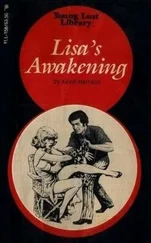Kevin Guilfoile - Cast Of Shadows
Здесь есть возможность читать онлайн «Kevin Guilfoile - Cast Of Shadows» весь текст электронной книги совершенно бесплатно (целиком полную версию без сокращений). В некоторых случаях можно слушать аудио, скачать через торрент в формате fb2 и присутствует краткое содержание. Жанр: Триллер, на английском языке. Описание произведения, (предисловие) а так же отзывы посетителей доступны на портале библиотеки ЛибКат.
- Название:Cast Of Shadows
- Автор:
- Жанр:
- Год:неизвестен
- ISBN:нет данных
- Рейтинг книги:4 / 5. Голосов: 1
-
Избранное:Добавить в избранное
- Отзывы:
-
Ваша оценка:
- 80
- 1
- 2
- 3
- 4
- 5
Cast Of Shadows: краткое содержание, описание и аннотация
Предлагаем к чтению аннотацию, описание, краткое содержание или предисловие (зависит от того, что написал сам автор книги «Cast Of Shadows»). Если вы не нашли необходимую информацию о книге — напишите в комментариях, мы постараемся отыскать её.
Cast Of Shadows — читать онлайн бесплатно полную книгу (весь текст) целиком
Ниже представлен текст книги, разбитый по страницам. Система сохранения места последней прочитанной страницы, позволяет с удобством читать онлайн бесплатно книгу «Cast Of Shadows», без необходимости каждый раз заново искать на чём Вы остановились. Поставьте закладку, и сможете в любой момент перейти на страницу, на которой закончили чтение.
Интервал:
Закладка:
Justin could tell she was nervous, and he calmed her. He wasn’t upset. He was glad that she had told him. Did his father know she was going to tell him today? He did? Well, it’s no surprise he didn’t want to be here for this, either. They laughed. She cried a little. Never worry about telling me the truth, he told her, and she promised she wouldn’t. Never again.
It wasn’t the whole truth, and at the time Justin assumed his mother knew, as he did, that the story was a lie. Soon, he would find out differently and he would hate himself for mistaking her for a coconspirator. Even now, wondering if she was holding something back, he loved her for telling him. For giving him on his birthday the thing he had been searching for in all of those gift-wrapped books.
– 59 -
In New York, being a liberal didn’t mean putting a target on your back.
When he took the job as managing editor of the Chicago Tribune, Stephen Malik knew the publisher was using him. The Tribune had long been a Republican paper in a Democratic town, and he understood the editorial page would always try to preach to its conservative suburban base. Malik was brought in to answer charges from city readers (and supporters of the current governor) that the news division had a right-wing bias as well. Malik’s liberal credentials gave the Trib some cover. And of course, Malik knew, his presence provided them with a convenient fall guy if things ever went wrong.
Beginning in June, boy had they.
The frayed end that unraveled it all was a story on an anti-cloning protest in front of the Dirksen Federal Building. The protesters – or more accurately, advocates – were expressing their support for the Buckley-Rice Anti-Cloning Act. Written by a young and promising reporter named Scott Harmon, the article estimated the size of the crowd at around 150, and described in detail the signs and the banners they carried: STOP THE BOYS FROM BRAZIL. MAN CAN CLONE A BODY BUT ONLY GOD CAN CLONE A SOUL. CLONING = SIN. Harmon also quoted a small group of counter-protesters. “These people are just afraid of progress,” said one, identified as Cameron Straub. “They’re ignorant.” Another young man, a Naperville resident named Denny Dreyfus, claimed to be a clone himself, as well as a Catholic: “I feel like [the protesters] are denying me my humanity,” he said. “It’s like they’re telling me I’m not human. That I’m an affront to God.”
A freelance writer living in Wrigleyville took an interest in the second quote. His name was also Denny Dreyfus, and he began working on a feature story about this clone who shared his name. He thought he could sell it to Chicago magazine, for which he’d written several articles in the past.
There was a problem, however. He couldn’t locate the other Denny Dreyfus. Not in Naperville or anywhere else in Illinois. He tried looking for Cameron Straub, thinking the two might be friends. He couldn’t find anyone by that name at all.
When an e-mail query from Dreyfus the writer arrived at Stephen Malik’s desk, he felt ice against his spine. He remembered that story. He remembered looking at an early draft of it and wondering how it got past the Metro editor in the shape it was in. It hadn’t a single quote from pro-cloning counter-protestors. There must have been at least some of them making noise at a protest that size. Word came back that Harmon had interviewed several but didn’t think the quotes were that strong. “I don’t care,” Malik said. “Get the other point of view in there somehow.” The next version had the quotes from Denny Dreyfus and Cameron Straub.
Dreyfus wanted to see Harmon’s notes on that story. With twenty years in the business, Malik was certain he knew what would happen next.
Dreyfus’s story ran in the Chicago Reader and included a dozen or more cheap shots at Malik’s expense from anonymous discontents in the Tribune newsroom, each accusing him of trying to undermine the objectivity of his reporters by injecting news stories with his own political and personal agendas. By that time, Scott Harmon had been fired for fabricating quotes, but that had only made him disgruntled, and he spoke on the record with Dreyfus. “I felt pressured to get certain points of view, certain liberal points of view, in my stories,” Harmon said. “Malik never complained if the conservative side wasn’t represented.”
Others suggested to the Reader (anonymously, of course) that Malik’s aggressive attempts to create “diversity” by hiring reporters without a solid background in journalism had forced unqualified people into prominent assignments at the paper. The implication (the way Malik read it) was that the Harmon incident was an example of this, even though Scott Harmon was a white kid with a degree in film, the son of a wealthy advertiser, in fact, whose hiring had been imposed upon Malik from higher up. In fact, Malik was proud of many new writers he’d managed to lure into the ranks.
Sally Barwick was an example. Bright. Hardworking. African-American. Her prose was efficient and almost entirely free of cliche. If there was anything he would change about her, it would be her insistence on working the police beat. As a matter of philosophy Malik didn’t think any reporter, especially one with such promise, should stay in the same department for more than twelve months at a time. Sally, however, a former private eye, had convinced him of her passion for cops and crime scenes and courtrooms. Also, as a matter of smart management, Malik believed in keeping his best writers happy.
He had heard about her hobby. There had been snickers about it in editorial meetings practically since the day she was hired, and Dreyfus even made a snide allusion to it in his Reader story, although he didn’t mention her name. Malik thought it was ridiculous. Tens of millions of people played Shadow World, and yet there was still this crazy stigma attached to it. The Tribune had done countless stories about the phenomenon, and he remembered one citing studies in which one in five people who said they weren’t gamers actually were, and more than half of those who admitted to playing lied about how much time they spent inside the game. If it didn’t affect her work (and as far as he could tell, it never had), then why the hell should he care what she did in her spare time? They had a sportswriter who was a snake handler; that was a lot weirder than playing some video game.
“You wanted to see me, Stephen?” Barwick asked.
Malik waved her into his office and motioned for her to shut the door.
“What’s going on?”
“I just wanted to give you a heads-up. I don’t know how long I’m going to be at this paper.”
“You’re quitting?”
Malik knew her shock was feigned – Barwick was aware of newsroom politics. She heard the talk in the hallways and across the street at the Billy Goat and from gossipy colleagues at other papers. He appreciated the gesture, though. “Not exactly.”
“They’re forcing you out? Over this Dreyfus bullshit?”
His head drifted unconvincingly to the left and right. “Not yet. I might even survive this one, but I’ve learned something from it. Next year it will be something else. And the year after that, there’ll be another ‘Dreyfus affair.’ One of them will have my number on it. They won’t back me up indefinitely.”
Sally sat in a green chair with upholstery that felt more like scratchy carpet. “You don’t have to worry about me,” she said. “I’ll back you all the way.”
“I know,” he said, not smiling where another man might. “That’s why I wanted to talk to you. One day, they might ask you to choose sides. When they do that, I want you to look after yourself.”
“Not a chance,” Barwick said. “I owe my career to you. If you hadn’t put me on the murder beat, I’d still be transcribing obits over the phone.”
Читать дальшеИнтервал:
Закладка:
Похожие книги на «Cast Of Shadows»
Представляем Вашему вниманию похожие книги на «Cast Of Shadows» списком для выбора. Мы отобрали схожую по названию и смыслу литературу в надежде предоставить читателям больше вариантов отыскать новые, интересные, ещё непрочитанные произведения.
Обсуждение, отзывы о книге «Cast Of Shadows» и просто собственные мнения читателей. Оставьте ваши комментарии, напишите, что Вы думаете о произведении, его смысле или главных героях. Укажите что конкретно понравилось, а что нет, и почему Вы так считаете.












